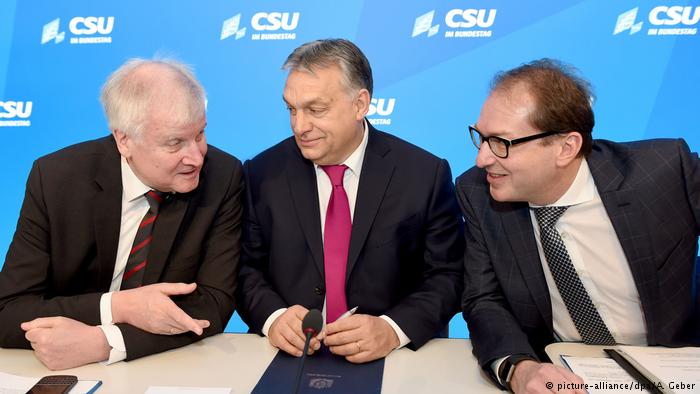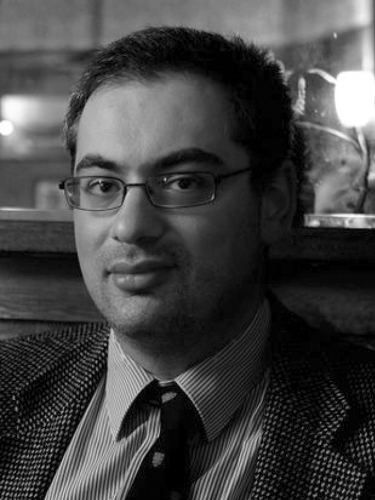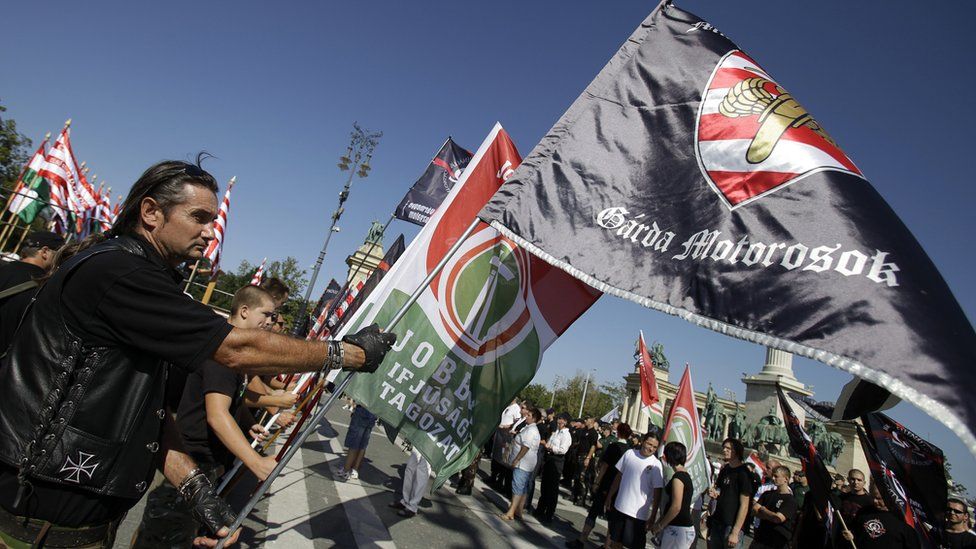Journalist Alexander Faludy talks about Europe’s post-Merkel era, where Fidesz is going after the exit from EPP, why he is worried by recent statements by Momentum leader Fekete-Győr and why Hungary urgently needs a conservative party.
Host: Zoltán Kész
2021 will be crucial year for the European Union. The upcoming goodbye of German Chancellor Angela Merkel will not only redefine the political spectrum in Germany, but her successor will be shaping the future of the EU. German leaders cannot direct the Union on their own, but by being the center of gravity of the EU, it’s almost impossible to get things done without the cooperation of Berlin.
The question of succession of Mrs Merkel remains wide open, but Armin Laschet and Markus Söder, two aspirant candidates, seem to have an advantage over other contenders. A significant continuity with the Merkel era would represent Mr Laschet, the leader of the CDU and the Minister-President of the state of North Rhine-Westphalia.
On the other hand, Markus Söder, a moderate conservative from the CSU and the Minister-President of Bavaria, would mean an “interesting step change” in certain areas of German politics and make a coalition building with The Greens easier. “He has been willing to challenge some interests of the German car industry in the legal dispute with Volkswagen over the emissions fraud,” Mr Faludy pointed out.

Current opinion polls show a much greater personal popularity for the Bavarian leader than for Mr. Laschet. “It could be an unusual case that the junior partner is taking the lead this time”.
CSU and Fidesz – a love affair
Mr Faludy sees the relations between German conservatives and Fidesz as “complicated” and “ambiguous”. Mr Söder has seemed trying to capitalize on it when Fidesz withdrew from the EPP’s parliamentary group calling for its expulsion from the party structure. This signals the optics of CSU turning its back on to the Hungarian ruling party, but the picture is not entirely clear.
“I am a little bit cautious about reading too much into it,” he said. Mr Söder made his remarks once Fidesz was already leaving the EPP and there was no potential political cost in making it.
Despite ‘Fidexit’, the Hungarians leave behind the Christian Democratic People’s Party (KDNP) and the Democratic Alliance of Hungarians in Romania (RMDSZ) as members of the EPP, two political formations with close ties to Viktor Orbán and his party. This raises the question of eventual future cooperation between the sides behind the scenes, even though with fewer photo opportunities. “There is a bit of me that wonders whether they will manage to be friends with benefits,” the journalist said.

Photo credit: Andreas Gebert, dpa via AP
The future of Fidesz
Which direction Fidesz will take on the European scene is a question still unanswered. It seems that rather than joining an existing party family, Mr Orbán wants to create a new formation in which this party could be of major influence. This could bring together existing parties of ECR with Matteo Salvini’s Lega Nord from ID.
“This effort is ambitious,” Mr Faludy said with respect to opposing attitudes towards Russia. Mr Salvini’s party has a “very different” view of Russia than the Polish ruling party. “I don’t know how plausible this is.”
By having a smaller number of MEPs, such a political constellation could easily result in Fidesz playing second fiddle to Law and Justice and lead to frictions. “I don’t think Orbán wants to be subservient to someone else’s interests,” Mr Faludy claimed.
Hungary’s ruling party, however, could upset the smaller amount of MEPs with larger scale financing of the new formation’s operations. Fidesz has recently been pouring millions of euro into a new office space and lobbying activities in Brussels.
A new Hungarian partner for the EPP?
A major space is to be filled after with the Fidesz delegation having left the EPP. Although Jobbik has been recently trying to sell itself as the “Hungarian people’s party” and simultaneously pursing an EPP membership, Mr Faludy doesn’t see them joining Europe’s major conservative force.
“They are haunted by the legacy of earlier Jobbik extremism and they are still perceived as an extremist party,” Mr Faludy said. “This is not possible, it’s just too toxic.” Many members of the current Jobbik leadership were part of the extremist era, which is a huge obstacle for the party “rebranding itself in wider European eyes.”
The intimidating, black-clad Hungarian Guard was established by former Jobbik leader Gábor Vona but later banned. Vona quit Jobbik in 2019. – Photo credit: (1) Tamás Botos, 444.hu / (2) AFP
Therefore, the political situation in Hungary offers a momentum and space for a “real conservative party” to emerge. “Moderate conservative parties are essential to a functioning and healthy political space and Hungary needs one”.
Joined opposition forces
The journalist thinks that the chances of the opposition are “much better” than in any former Hungarian election. “It’s a relief to see that opposition politicians have woken up to the fact that it’s better to focus on fighting Fidesz than fighting each other.”
Hungary’s election system is “weighted”. The ruling party has designed it in a way that a small popular majority can yield a large parliamentary majority. “This could be flipped to work against Fidesz”, Mr Faludy said.
Despite improved chances of the opposition, there are various ways of manipulating the political space. The possibility of further changes to electoral boundaries is in the air and should not be ruled out. “Fidesz has a constitutional majority, it can do what it wants.”
Could opposition parties govern together?
Even if the opposition won the parliamentary election next year, the question of how the coalition parties could hold together and govern effectively would be a concern. “That’s a considerable worry.”

Photo credit: Gábor Ancsin, Képszerkesztőség, 444.hu
On the one hand, the lineup includes “credible people” like Gergely Karácsony and Péter Márki-Zay, but there are worries about recent statements made by Momentum leader András Fekete-Győr. The use of prosecutors to deal with corruption issues has to be looked at “carefully”.
“Exacting justice in relation to Fidesz should be the job of an independent prosecution service and judiciary”. The opposition should focus on restoring the independence, functionality and credibility of Hungary’s institutions.
Combating corruption could also work by the restoration of a “properly” free market. Corrupt enterprises and their structures function on the basis of heavy subsidies and corrupt public procurement practices. “Take those things away and they will collapse as they don’t have competitive instincts and innovative talent”, Mr Faludy suggested.
Cover photo credit: Peter Kneffel, Reuters, Pool

Alexander Faludy is a British-Hungarian freelance journalist. As a child prodigy, he became the youngest undergraduate at the University of Cambridge since 1773. He has been a strong critic of Hungary’s prime minister, Viktor Orbán. He lives in Budapest and Cambridge.
Photo credit: forbes.hu






Dear Alex
Good to hear you. I would share your sceptical view about the prosecutors’ office doing anything
The independence of so many institutions now needs urgent repair – but the judiciary and the media must be good starting points!
Take care of yourself – vaccination sounds to be somewhat slow in that neck of the woods.
Well done, Alex! However, Hungary has been kind of missing the boat since 1848 at least, and I don’t think ‘moderate’ conservatism has ever really taen root. Today, even that small slice of the electorate which claims it is of the moderate right, which includes many of those MDFers that first sided with Orban only to later reject his state-controlled corruption really don’t have much clue about a moderate, regulated free market.
One of the real problems in Hungary is an ability to debate, to undertand that others have another view which is valid. MAny years ago, 1990 or 1991, I wanted to present the for and against arguments on the planned 1996 World Expo on Radio Bridge – then the one and only E-language radio station in Hungary. I contacted someone (I honestly forget the name – let’s call him Laci) on the MDF side, which strongly backed holding the expo.
I also told Laci that I wanted a debate, with the voice of another viewpoint. At this he balked, and said he wouldn’t take part with “any old idiot”. So I said: well who would you recommend? (Yes, I know, silly me, but there was no internet in those days – and I was learning on the job!) At which he said something like: “Well, how about Gyorgy X?”
So I contacted Gyorgy, he agreed to come and a few days later I had them both in the studio live on air. I invited Laci to say his piece, which he did, outlining the magnificent plans and estimations of hundreds of thousands of visitors who would pay thousands of marks and dollars to have this unofrgettable experience in the incredibly unique and hospitable city of Budapest before buying 22 kg of Somlo galuska and 17 cases of Tokaj 5 puttonyos aszu at Ferihegy on the way home. (I exaggerate, in case it’s not clear – but you get what I mean.)
Then I turned to Gyorgy, and asked for his viewpoint. “Oh, I fully agree with Laci,” he said.
It was then that I realised that for Laci, “any old idiot” meant “anyone who disagrees with me”.
I never made that mistake again.
* The above tale is true in the essentials – although I can’t really remember any of the actual quotes three decades later, you understand.
Regards, Kester